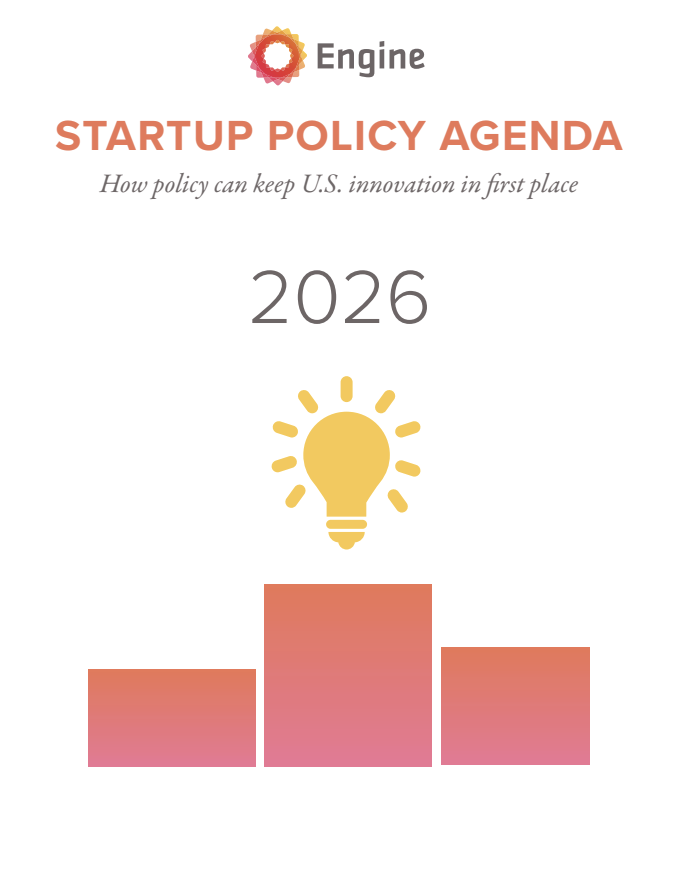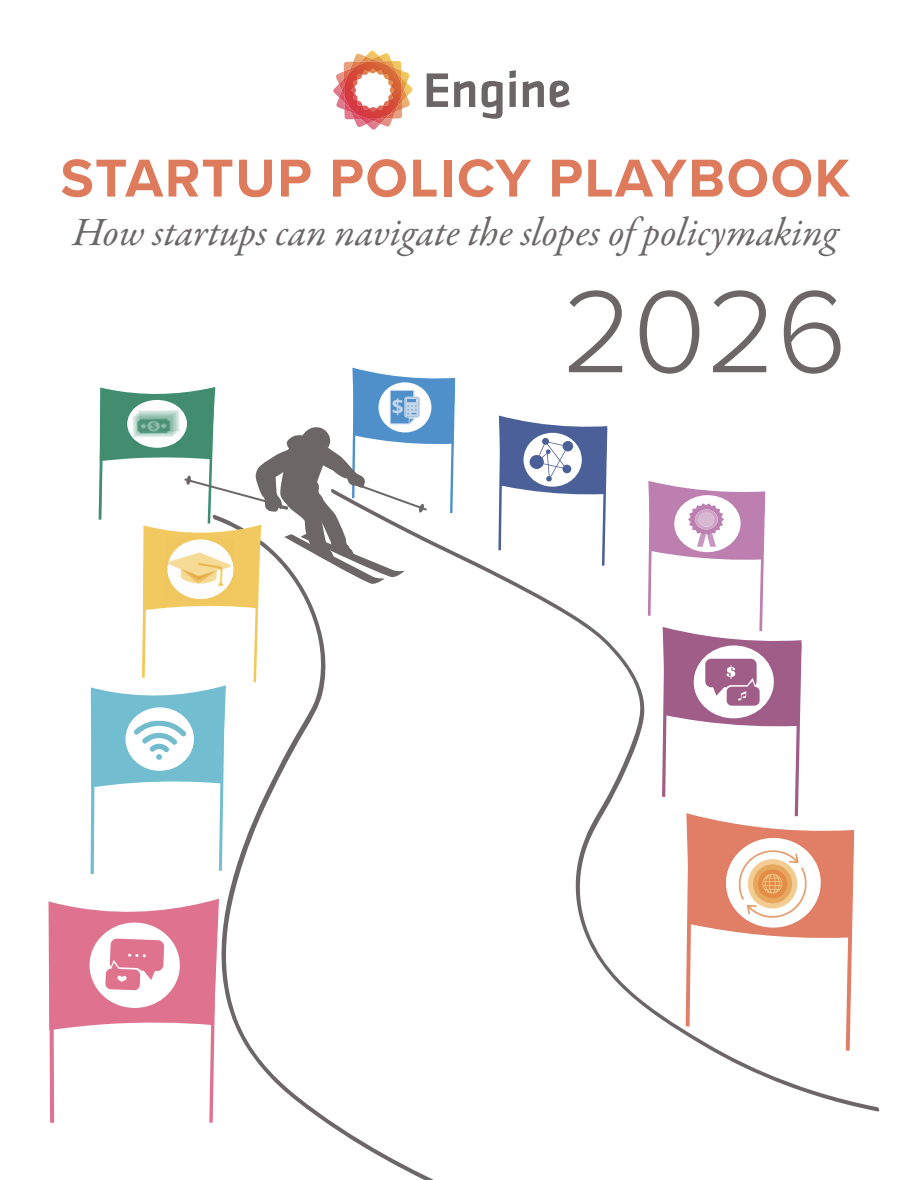In a letter to President-elect Joe Biden and Vice President-elect Kamala Harris, Engine outlines principles we hope will guide the incoming administration’s selection of the next director of the U.S. Patent and Trademark Office (“USPTO”). The full text of our letter is below.
Startup News Digest 01/15/21
The Big Story: Biden proposes billions in COVID relief for entrepreneurs. President-elect Joe Biden unveiled an ambitious $1.9 trillion coronavirus relief package yesterday focused on bolstering the nation’s response to the pandemic, providing more direct relief to working families, and supporting small businesses and communities that have been most affected by the ongoing economic uncertainty. Building off of economic relief efforts signed into law at the end of last year, Biden’s proposed package would place a greater emphasis on relief for the U.S. entrepreneurial and small business communities.
#StartupsEverywhere: Campbell, Calif.
21Labs is an autonomous testing and analytics platform that lets mobile app developers and engineering teams accelerate their release cycle and perfect the user experience of their iOS and Android applications. We recently spoke with 21Labs’ CEO, Shani Shoham, to learn a little more about his startup’s work, his experience as an immigrant founder, and why it’s so important for the U.S. to attract and attain the best talent from across the world.
Efforts to Undermine H-1B Visa Program Will Harm U.S. Tech Sector
TLDR: Although the technology industry remains hopeful that the incoming Biden administration will overturn President Trump’s harmful immigration policies, startups and other businesses are concerned that a federal rule published in the last days of Trump’s term would further weaken and restrict access to the H-1B visa program. Tech companies rely upon the significant contributions of foreign-born workers to grow their businesses, but ongoing efforts to limit access to crucially-needed talent will only drive high-skilled workers to other nations.
Startup News Digest 01/08/21
The Big Story: After attack on U.S. Capitol, Internet companies move to block Trump. Content moderation efforts at the world’s largest Internet companies were under the microscope this week as Facebook, Twitter, and YouTube took action against content shared by outgoing President Donald Trump that led to a violent riot at the Capitol that left five dead, including a U.S. Capitol Police officer.
Startup Policy: 2020 Year in Review
TLDR: Over the course of 2020, policymakers engaged on a variety of critical issues and concerns impacting the nation’s startup community, especially around the COVID-19 pandemic, which upended daily life for millions of Americans. Small businesses and entrepreneurs affected by the pandemic called for Congress to provide nascent companies with the emergency support needed to weather the economic uncertainty. The startup perspective has also been crucial in discussions about the importance of Section 230 for small Internet companies that host user-generated content, changes to a law that provides startups with a balanced framework for addressing allegations of online copyright infringement, policies limiting access to high-skilled talent, and much more. As the end of the year draws near, we wanted to highlight just a few of the policy issues that have affected the startup community in 2020.
Statement on the Digital Copyright Act
The Digital Copyright Act of 2021 from Sen. Thom Tillis (R-N.C.) proposes changes to copyright law that would be bad for startups that host user-generated content and the everyday Internet users and Internet-enabled creators they serve. As currently drafted, the bill would disrupt a statutory framework at the foundation of innovation, creative expression, and economic growth that would not have been possible twenty-five years ago.
Statement on the CASE Act’s inclusion in the omnibus spending bill
We are disappointed by Congress’s decision to include controversial copyright legislation in the must-pass omnibus spending bill. As Engine and several smaller Internet platforms expressed earlier this month, “the CASE Act—as currently drafted—will be fundamentally unfair to and create substantial confusion for” everyday Internet users, small businesses, and Internet-enabled creators across the country. That bill would create an extra-judicial board where certain copyright holders could seek substantial damages—up to $30,000—over alleged copyright infringement.
Startup News Digest 12/18/20
The Big Story: Trump tees up NDAA veto fight over Section 230. President Donald Trump is still threatening to veto the must-pass annual defense authorization bill over his demand to repeal Section 230. Trump and some Republican lawmakers have spent months falsely claiming that the bedrock Internet law allows technology companies to “censor” conservative voices online, despite the fact that changes to the law would likely have an outsized impact on startups and others that rely on Section 230’s liability limitations to host and moderate user content.
#StartupsEverywhere: Durham, N.C.
LoanWell—a Durham-based fintech startup—is seeing years of hustle pay off, and finding ways to help get financial relief to small businesses across North Carolina, during the pandemic. We spoke with Bernard Worthy, LoanWell’s CEO and Co-Founder, to learn more about his startup, the company’s unique efforts to support economic relief, and his thoughts about how communities and governments can and do support underrepresented founders.
Startups Looking to Policymakers to Craft a Roadmap for Recovery
TLDR: As the year draws to a close, Congress has yet to cross the finish line on another much-needed relief package to provide economic relief for Americans, including small businesses and entrepreneurs. But even as a bipartisan group of policymakers introduces a two-part relief package this week, U.S. entrepreneurs are still eagerly waiting for assistance that will help ensure the long-term survival of the country’s startup ecosystem.
Startup News Digest 12/11/20
The Big Story: Congress must act after Privacy Shield rollback leaves startups without certainty. A Senate panel held a hearing this week to examine ways of creating a new transatlantic data transfer pact after Europe’s top court struck down the EU-U.S. Privacy Shield earlier this year. The cross-border data pact allowed U.S. companies to process and store European users’ data in America, and the rollback of the agreement is already having adverse effects for thousands of startups and tech companies.
#StartupsEverywhere: San Francisco, Calif.
Fiskkit provides users a platform to engage granularly with online content, discuss important topics together, and present accurate, valid, and relevant evidence to counter misinformation on the Internet. Users can comment on and critique articles line-by-line, identifying what is true, false, well-reasoned, or unsound. Through this engagement, Founder and CEO John Pettus thinks that Fiskkit can promote critical thinking and civility in our discourse. We recently spoke to John to learn more about Fiskkit, how startups can benefit from a wider array of corporate structures, the importance of intermediary liability frameworks, the value of balanced copyright laws, and his vision for Fiskkit moving forward.
Digital Services Taxes Will Harm Startups Across the World
TLDR: As intergovernmental organizations and countries continue to discuss implementing their own digital services tax (DST) frameworks on multinational Internet companies, France has notified large online platforms that they must begin paying the country’s levy this month while Canada recently announced plans to impose its own DST. Although most DSTs under consideration—as well as those that have already been implemented—target large, mostly U.S.-based tech companies, the startup community remains concerned that the burden of the taxes will be passed on to smaller companies and users in the form of increased costs for products and services.
Startup News Digest 12/04/20
The Big Story: Courts deal blows to White House policies limiting foreign-born talent. Two court rulings this week struck serious blows to the Trump administration’s efforts to restrict legal immigration and limit U.S. companies’ access to foreign-born talent. But while the incoming Biden administration is likely to reverse course on many of President Donald Trump’s immigration policies, entrepreneurs and U.S. tech companies remain concerned about the White House’s ongoing efforts to clamp down on visa programs for high-skilled workers—like H-1B visas—that are vital to the U.S. tech sector.
Engine Asks Supreme Court To Ensure That the Patent Review Process Remains Available To Startups
Engine and the Electronic Frontier Foundation submitted an amicus brief to the U.S. Supreme Court this week in United States v. Arthrex Inc. asking the Court to reconsider a Federal Circuit decision last year that found that administrative patent judges (APJs) of the Patent Trial and Appeal Board (PTAB) were unconstitutionally appointed.
Engine Submits Comments To USPTO on Proposed Changes That Would Weaken Patent Review
Engine submitted comments to the U.S. Patent and Trademark Office this week in response to the agency’s request for comment concerning the exercise of discretion to deny inter partes review (IPR) petitions. IPR makes it easier for startups and other small businesses to push back against frivolous lawsuits brought by patent trolls, but the USPTO’s proposal would codify current policies and practices that weaken the patent review process. This would make it more difficult for startups to challenge low-quality patents and open the door to further abusive litigation.
#StartupsEverywhere: Las Vegas, Nev.
Based in Las Vegas, Door to Door Health is an early-stage healthcare startup that’s using technology integrated with in-person medical care to improve primary medical care services for lower-income households. We spoke with David Crane—the CEO of Door to Door Health—to learn more about his startup’s mission, how technology can be used to improve healthcare, and the steps that policymakers can take to incentivize more private investments in startups.
Last Minute Moves on Section 230 Would Be Selling Out Startups
TLDR: As the year winds down, Republican policymakers are making multiple eleventh-hour attempts to undermine a foundational Internet law that has drawn the ire of President Donald Trump in the lead up to and aftermath of the 2020 election. This week, the Senate Judiciary Committee is slated to consider a bill to reform Section 230—the law that creates intermediary liability limitations for online services that host user-generated content—and the Trump administration is reportedly threatening to veto the annual defense authorization bill if it does not include Section 230 reforms.
Limiting High-Skilled Visas Hurts U.S. Startups
TLDR: As the technology industry looks to President-elect Joe Biden to overturn the Trump administration’s immigration policies limiting access to high-skilled foreign talent, startups are continuing to pressure Congress to defend and expand the H-1B visa program. Tech companies rely upon the contributions of high-skilled foreign-born workers to drive innovation, but limiting access to this talent—particularly during the pandemic—could harm the long-term growth of U.S. startups.









